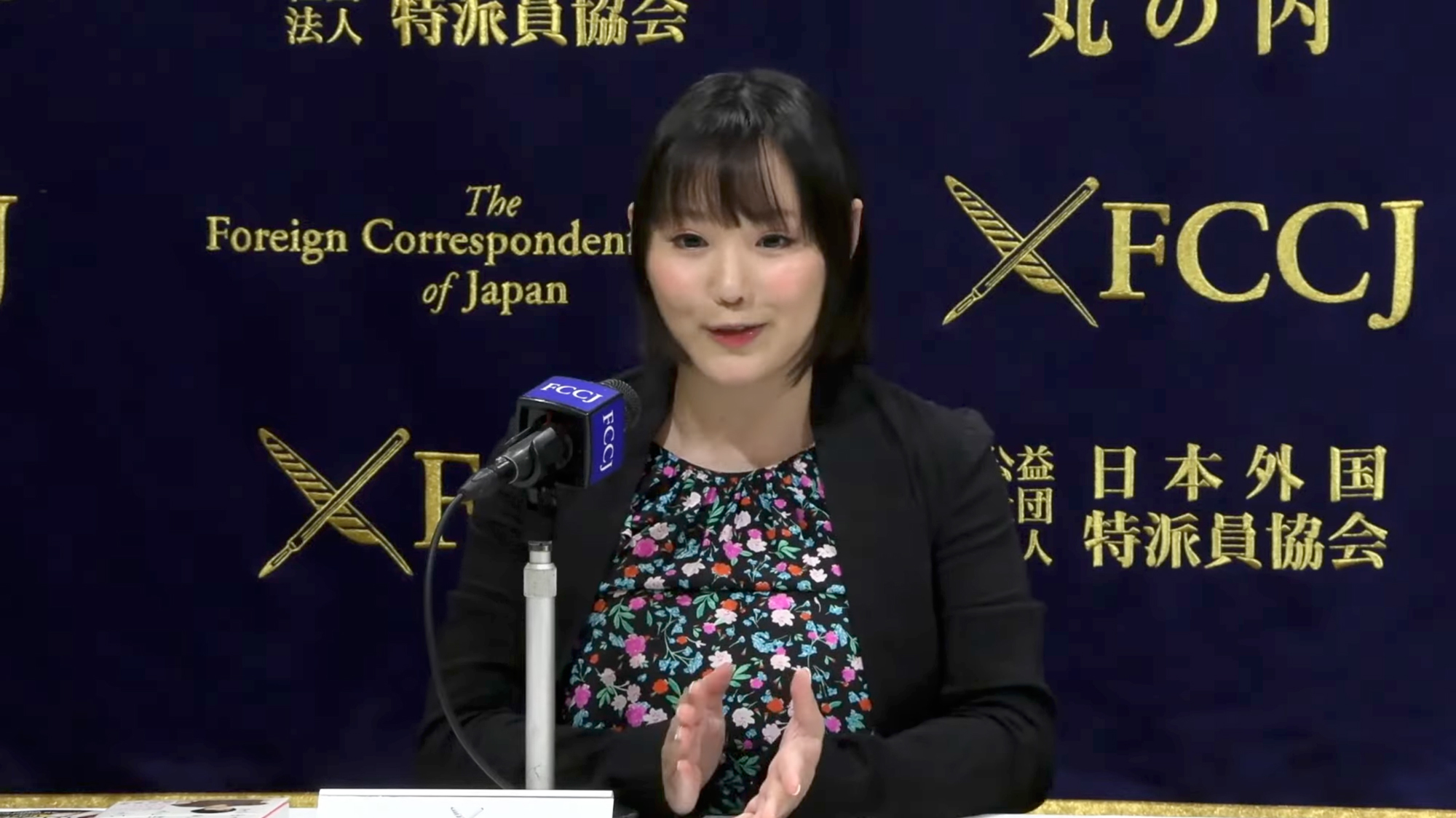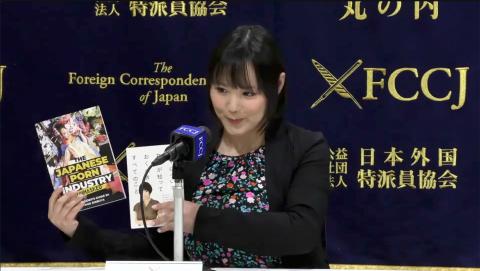Issue:
May 2024
Former AV star says industry reforms do not go far enough to protect actors

Kaho Shibuya has an unusual explanation for the peculiarities of the Japanese porn industry, from why young women act in adult films to what happens to them after they retire. And why convenience stores located near porn studios quickly sell out of the Asa Banana (Morning Banana) energy drink.
The former adult video (AV) performer and author of the recently published English-language book The Japanese Porn Industry Unmasked: An Insider’s Guide appeared in nearly 750 films from 2014 until her retirement in 2018.

An actor-turned-activist, Shibuya now advocates for the rights of current and former AV performers, arguing that a reform bill passed several years ago falls short of protecting women from exploitation and abuse. She is also suing an AV production company for releasing unauthorized and uncensored (non-pixelated) versions of videos in which she appears.
In an interview with the Number 1 Shimbun ahead of a recent press conference at the FCCJ, Shibuya said young women entered the AV industry for complex reasons that change over time.
Money is a major factor, according to Shibuya, but performers have a hard time monetizing their talent in Japan, where porn sites such as Only Fans are not as popular as they are in other countries. The reason, she says, is that such direct channels “cannot be controlled by the agencies, which try to milk the system in Japan”.
Another factor is the fame that comes with starring in adult films.
“You are treated kind of like an idol and tarento and get invited to TV and photo shoots despite the pay being really minuscule,” says Shibuya. Then there’s the safety issue, whereby male actors in the past (and now also female actors) are required to bring clean [STI] test results before performing in an AV production.”
All of these factors make performing in an AV film preferable to, say, sex work, she adds.
The Diet passed the Adult Video Appearance Damage and Relief Bill in 2022, giving actors the right to prohibit the sale of videos they have appeared in from five years from the original release date.
But the new law is not retrospective and only relates to films produced since the bill was enacted, by which time Shibuya had already left the industry.
Japanese adult videos, manga and anime conceal the genitalia of male and female performers. A Japanese couple was reportedly arrested for releasing an uncensored video they posted on Only Fans.
Some companies that produce ura (illicit) videos attempt to make it look like they film is shot overseas, but several female actors who appeared in uncensored videos were arrested, according to Shibuya.
When an unedited video in is leaked, it is hard for the actors who appear in it to sue the production company. “I can understand that,” she says. “If you’re still in the industry you can’t sue your client, right? But if it happened to me, I would take action.”
And that's exactly what she did.
When a couple of unedited videos featuring Shibuya, shot on the same day in 2015, resurfaced in 2020, the production company told her they had no idea how it had happened. But she was not convinced.
She is now suing the company, insisting that the leak had to come from an employee with access to the movie’s data. Surprisingly, she later found out that she was the first actor to bring a lawsuit of this kind against the industry. Its unprecedented nature means she was even unable to respond when her lawyer asked her how much she was seeking in compensation.
“It has to be enough so that they never do this again … but we actresses already have an image of being gold diggers, doing everything for money, so I wouldn’t want the money to be too big either,” she says. In the end, she demanded ¥10 million. In March, the judge encouraged both sides to settle, but the production company offered to pay only ¥500,000.
“It’s meaningless … it’s like saying ‘If anything like this ever happens again, don’t do anything, it’s not worth it,’” says Shibuya. Negotiations are continuing.
Shibuya attended single-sex schools through to high school and graduated with a degree in English from a prestigious university. Her physical appearance meant men and women who didn’t know her would often refer to her large breasts – something that made her feel sad and embarrassed.
After college, she joined a newspaper as a sports reporter covering professional baseball, but quickly realised that sports journalism was an unwelcoming environment for women.
“Being a woman, especially a big-breasted woman, was weird,” she says. “I felt uncomfortable interviewing baseball players, who would give me nicknames like ero-megane (erotic woman who wears glasses)”. In response she tried, and failed, to conceal her breasts by bandaging them.
Her newspaper colleagues were unable to see beyond the woman who was constantly confronted by sexist nicknames, so she quit in 2014 and decided to embrace her physique rather than fight it. “It was like therapy for me, too,” she says.
Shibuya accepts that society tends to look down AV actors, but says that, on the surface at least, the industry treats female actors “like princesses”.
During her four years as an adult film actor, Shibuya found that everything was transactional, an approach that made it feel less sexist than the pretence that came with her previous job in the media.
Yet she also remembers being coerced to perform when she felt unwell, and says some companies did not observe agreed rules on what she was and was not willing to do on set.
Since quitting the AV industry, Shibuya has focused on her Instagram channel, which has more than 1.2 million followers. She appears at cosplay and anime conventions and appears in YouTube videos, often with popular foreign YouTubers in Japan.
As for the Morning Banana question … you will have to read her book to find the answer.
Ilgın Yorulmaz is a freelance reporter for BBC World Turkish. She is the Second Vice President of the FCCJ.

